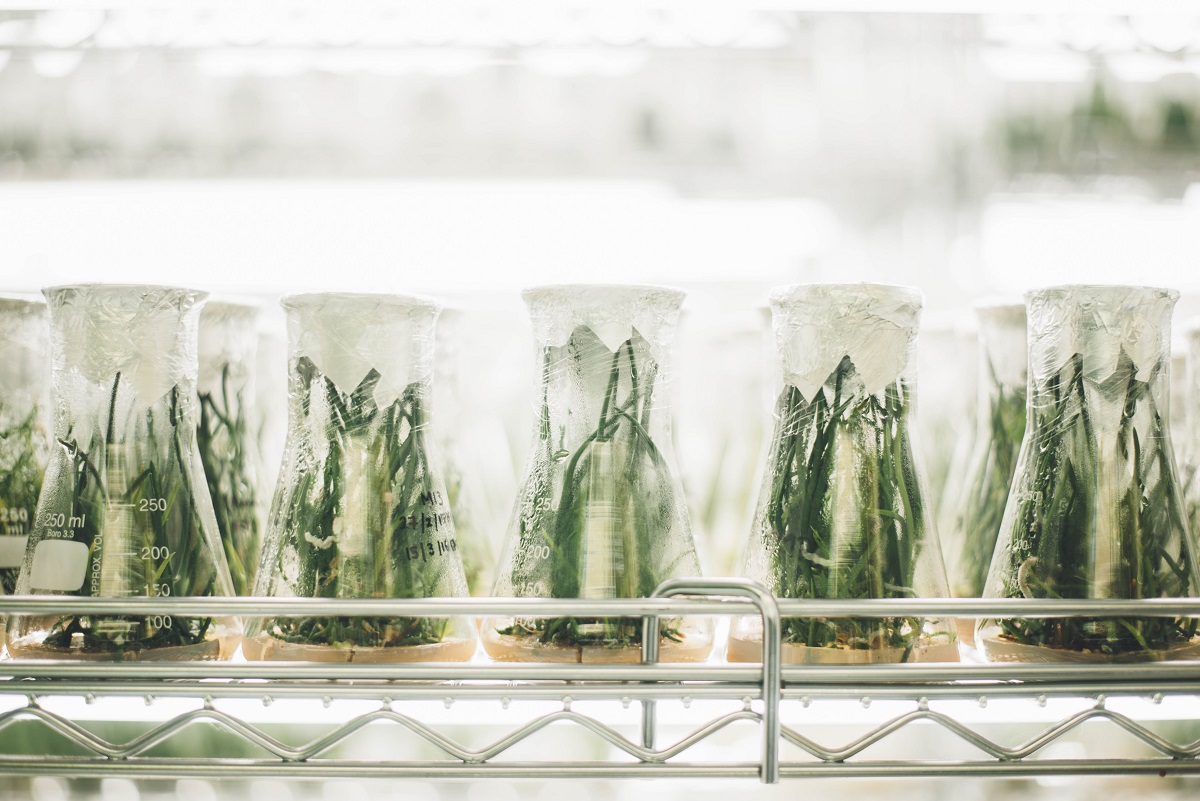
CRISPR-Cas9 Reveals that OsMPT3 is a Vital Osmotic Regulatory Factor
April 1, 2020| |
Experts from Chinese Academy of Agricultural Sciences used CRISPR-Cas9 to mutagenize two mitochondrial phosphate transporters to know more about their regulatory roles in salt stress response of rice. The findings are reported in The Crop Journal.
Plant mitochondrial phosphate transporters regulate phosphate transport and production of adenosine triphosphate (ATP), which is the cell's energy currency. By knowing if they are involved in abiotic stress response process would provide information on their response to salt stress. Thus, the researchers investigated on OsMPT3;1 and OsMPT3;2 using CRISPR-Cas9. They successfully generated two cas9 (CRISPR-associated protein 9)-free homozygous mutants. Results showed that both OsMPT3;1 and OsMPT3;2 were markedly induced by salt stress, and their mutagenesis strongly inhibited growth and development, particularly under salt stress. Both mutants demonstrate normal growth and development in the presence of ATP, revealing high sensitivity to exogenous ATP under salt stress.
The results of the investigation demonstrate that the OsMPT3 gene modulates phosphate transport and energy supply for ATP synthesis and triggers modifications the in accumulation of ions and metabolites participating in osmotic regulation in rice under salt stress, thus increasing rice salt tolerance.Read the research article in The Crop Journal.
| |
You might also like:
- Pocket K No. 54: Plant Breeding Innovation: CRISPR-Cas9
- ThPP1 Gene Enhances Alkali Stress Tolerance in Transgenic Rice
- BplMYB46 Gene Affects Abiotic Stress Tolerance and Secondary Cell Wall Synthesis in Birch
Biotech Updates is a weekly newsletter of ISAAA, a not-for-profit organization. It is distributed for free to over 22,000 subscribers worldwide to inform them about the key developments in biosciences, especially in biotechnology. Your support will help us in our mission to feed the world with knowledge. You can help by donating as little as $10.
-
See more articles:
-
News from Around the World
- Study Finds Providing Facts about GMO, Climate Change to Skeptics Helps Change Their Mind
- Biotech Stacks Adoption Continues to Increase Globally
- Chile Develops Drought, Saline-Tolerant Tomato, Kiwi
- Exeter Researchers Discover Novel Chemistry Against Fungal Disease of Crops
-
Research Highlights
- CBF/DREB1 Gene Family in Lettuce Confers Multiple Stress Tolerance
-
Plant
- CRISPR-Cas9 Reveals that OsMPT3 is a Vital Osmotic Regulatory Factor
- Knockout of the OsNAC006 TF Causes Drought and Heat Sensitivity in Rice
- Scientists Optimize Prime Editing for Rice and Wheat
-
Health
- UConn Researcher Develops Simple, Low-Cost CRISPR-based Diagnostic Test for COVID-19
-
Read the latest: - Biotech Updates (December 17, 2025)
- Gene Editing Supplement (December 17, 2025)
- Gene Drive Supplement (February 22, 2023)
-
Subscribe to BU: - Share
- Tweet

